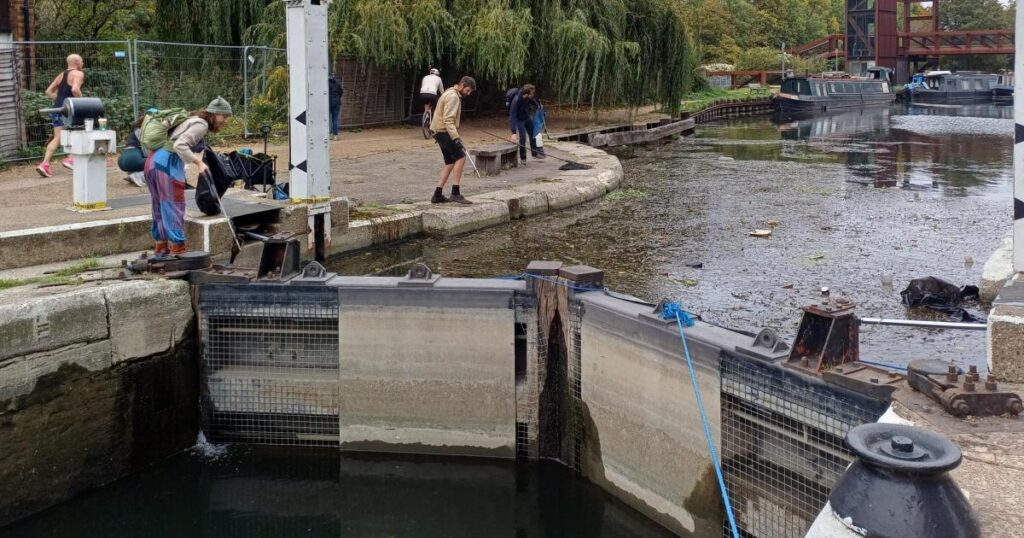The Nomadic Litterpickers group held their first ever litter-pick on Saturday, collecting rubbish left along the towpath in Tottenham from Tottenham Lock.
The group filled 30 sacks of rubbish, including plastic bottles, cans and other discarded items from the waterway, towpath and bushes.
“We have a deep connection to the waterways,” said spokesperson Alain Gough-Olaya. “We want to do our part to keep these spaces clean and accessible.”
“It was amazing to see the community come together and work towards a common goal,” he added. “We made a visible difference and had the chance to connect with fellow boat dwellers and neighbours.”
Describing themselves as passionate stewards of the environment, the Nomadic Litterpickers say they recognise the importance of maintaining clean and healthy waterways and public spaces.
Now they plan regular clean-ups wherever they wander. But the Nomadic Litterpickers’ “commitment to environmental stewardship” extends beyond sweeping the towpath.
The boat people are anxious to show they are part of the community in the wake of pressure from the Canal and River Trust, which manages Britain’s waterways.
The trust announced plans last December to consider licensing, which the boat people fear could see the end of their way of life.
Boat dwellers without home moorings are a problem, the trust argues. It has called for changes to the law and appointed an independent commission to review any future legislation into how boats on Britain’s waterways are licensed.
It doesn’t bode well for the boat people. The National Bargee Travellers Association’s Marcus Trower said: “We are a nomadic community travelling from place to place.
“Our homes are the waterways and the places we travel through and stop off at, not having one fixed home.
“Nomadic litterpicking is an example of initiatives from the boating community, especially now the Canal Trust is contemplating a law change. It’s an example of why boat dwellers are worth defending.”
The voluntary association campaigns for boat dwellers on inland and coastal waterways, for those whose home is a boat and don’t have a permanent mooring with planning permission for residential use.




